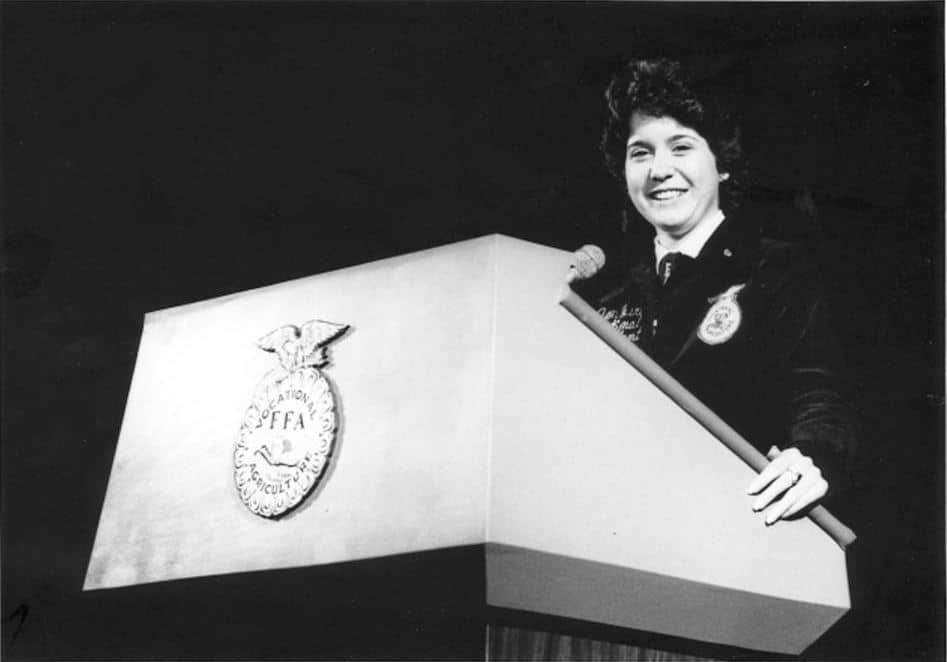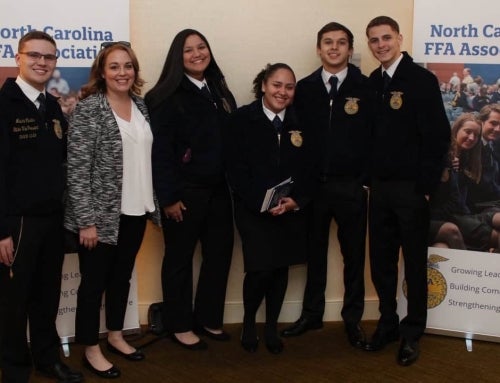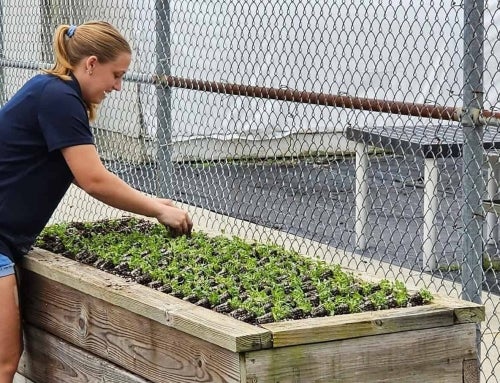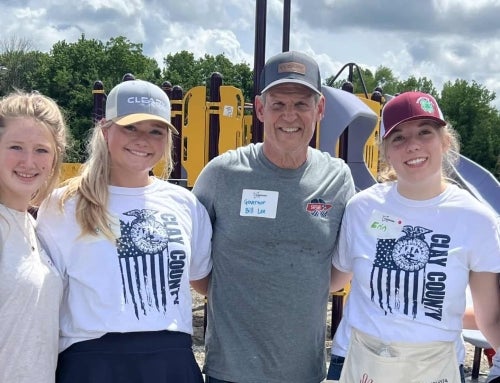A milestone for the National FFA Organization is approaching — 2019 marks 50 years of female membership for FFA. At the 91st National FFA Convention & Expo, a group of female leaders in the agricultural industry spoke to FFA members about their own career paths in the form of small round table discussions.
Women bring diversity of thought and perspective to the agricultural industry, reiterated Ashley Collins, director of collegiate relations for Agriculture Future of America (AFA).
“Women have different experiences from where we grew up geographically—women from the south come from a different background versus women in the north, women in the west,” Collins said. “I would say that is true of the women who are in AFA, just like the females who are in the FFA.”
Allison Flinn, associate director of public policy and government relations (U.S. & Canada) for Merck Animal Health, said she has seen an increase of women in leadership in the fields of animal and veterinary sciences.
“I believe the industry itself, as far as veterinarians out in practice, just hit that 50/50 mark, so I think it’s becoming more and more prevalent,” said Flinn, a veterinarian herself.
Jeanna Eppley, advisor for the Seymour FFA Chapter in Seymour, Indiana, said when she started teaching agricultural education, her community’s agricultural leadership was male-dominated. But, she has seen some changes.
“A lot of leadership positions in our ag industries are more male-dominant, but I’m seeing a huge growth in those females taking those leadership roles in industry and in our community, even beyond agriculture,” Eppley said.
For Eppley, the advice she gave for young women seeking leadership positions is “sticking to your guns, saying, ‘I’m going to go do it. Nobody’s going to tell me that I can’t.’” She said this is based on any situation, like gender, learning ability or socioeconomic status.
Eppley shared an adage from her own life. At the school where she currently teaches, the agricultural education program has a 140-acre farm. Eppley said she grew up on a farm and assisted with the farm work, but was never taught to drive a combine.
“Someone said, ‘Are you just going to hire a man to take care of the farm?’” Eppley said. “And I said, ‘Why would I want to do that?’”
Eppley said she and her colleague learned how to operate the farm equipment and, this year, harvested the school farm’s crops. Now, they will teach students how to run that equipment, too.
“As a leader, I realized that I still needed to learn,” Eppley said.
Leaders are also defined by what they do, Flinn said. And for young women seeking leadership roles, they should make that known to advisors or other leaders in FFA. True leaders are willing to help, she said.
“That’s the theme, I think, of leadership.” Flinn said. “Even more so for women is that we need to bring one another up and support each other so that we can all be successful together. If you’re interested in leadership, it’s up to you to let people know that you’re interested in leadership as a student or anywhere throughout the organization.”
Flinn said Merck reflects this notion with a 50/50 hiring record of women and men.
“They believe in equality,” Flinn said. “They believe in getting that collective genius of everyone that they possibly can with that diversity and inclusion. It’s really empowering.”
Collins said she does not want women’s leadership to regress.
“It is making sure that mentality stays alive, that these young women also don’t see a glass ceiling and that they know that there are opportunities for them,” Collins said. “There’s nothing that should hold them back.”
Dene Dryden is a junior at Kansas State University studying creative writing. An alumna of the Palco FFA Chapter in Kansas, she is serving as a reporter for the 91st National FFA Convention & Expo Newsroom Crew.












